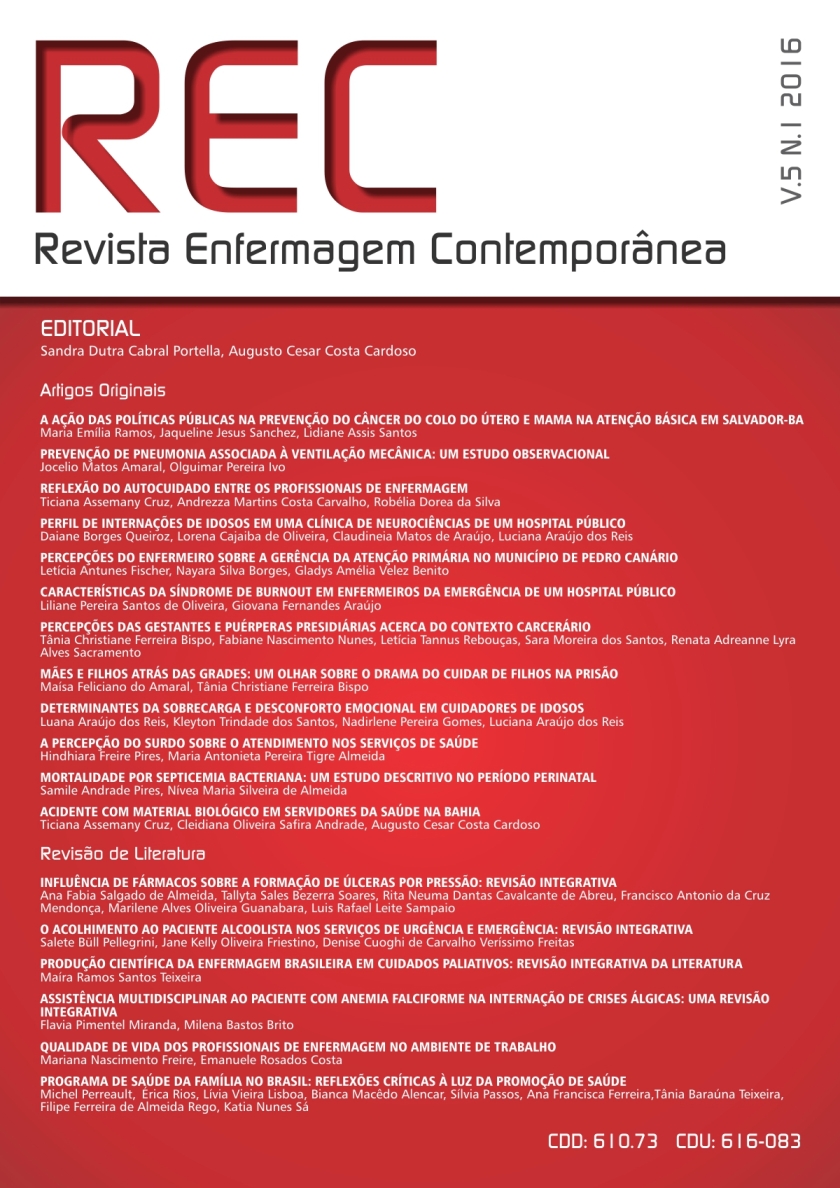HUMANIZED INTAKE OF INCOMING ALCOHOLIC PATIENTS IN URGENCY AND EMERGENCY SERVICES: INTEGRATIVE REVIEW
DOI:
https://doi.org/10.17267/2317-3378rec.v5i1.779Keywords:
User Embracement, Emergencies, Alcoholism, Mental HealthAbstract
Emergency care services receive highly complex patients, and various life-threatening situations, and many factors can influence the quality of care provided to patients. This study reviewed the literature on the application of the concept of humanized intake and its contributions to the specific demand of alcoholic patients in urgency and emergency services. An integrative literature review of scientific reports on the theme from 2004 to 2014 was performed in the Medline, Lilacs, Scielo and BDENF databases, based on descriptors: humanized inbound patient intake, emergency care and alcoholism. A total of 137 studies was found in the databases, 28 of which met the inclusion criteria being thus selected for analysis. Out of those, 09 studies were selected. Two categories pointing to the institution’s contribution to the individual alcoholic inbound patient primary care in urgency and emergency services could be identified: knowledge about the user profile in the emergency services and emergency and humanized patient intake and the role of professionals involved. It was identified that the implementation of humanization in health care should go beyond following protocol. It should seek integral humanized care to the alcoholic patient. It is concluded that the use of the premises of humanized intake in alcoholic patients, should be based on the recognition of the specific needs of the different user profiles and in the design and clarity of humanized inbound patient , for professionals to understand themselves as agents of change in reality.Downloads
Download data is not yet available.
Downloads
Published
08/26/2016
Issue
Section
Literature Reviews: Systematic, Integrative or Scoping Review
How to Cite
1.
Pellegrini SB, Oliveira Friestino JK, Cuoghi de Carvalho Veríssimo Freitas D. HUMANIZED INTAKE OF INCOMING ALCOHOLIC PATIENTS IN URGENCY AND EMERGENCY SERVICES: INTEGRATIVE REVIEW. Rev Enf Contemp [Internet]. 2016 Aug. 26 [cited 2026 Feb. 17];5(1). Available from: https://journals.bahiana.edu.br/index.php/enfermagem/article/view/779



